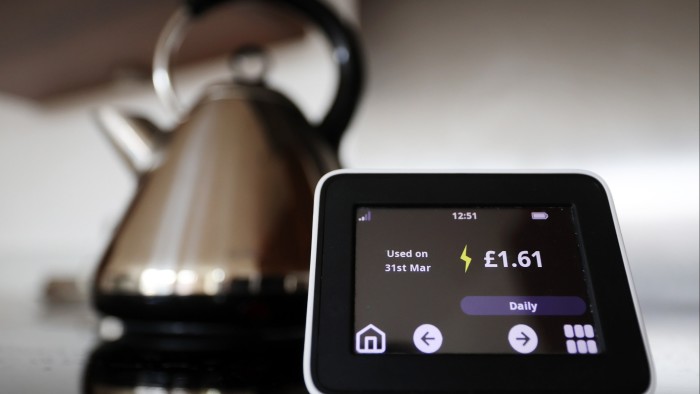This article is an on-site version of our Inside Politics newsletter. Subscribers can sign up here to get the newsletter delivered every weekday. If you’re not a subscriber, you can still receive the newsletter free for 30 days
Good morning. Today, I am going to ask a simple question. Who is well-off in Britain? I know this is supposed to be a topical politics newsletter, but sometimes a little philosophical navel-gazing helps to shed light on political and policy questions.
Inside Politics is edited by Georgina Quach. Follow Stephen on Bluesky and X, and Georgina on Bluesky. Read the previous edition of the newsletter here. Please send gossip, thoughts and feedback to insidepolitics@ft.com
Answer the question
First, I am going to let the British public give their answer. The well-off, as measured by surveys of people’s perceptions tend to be either, “someone considerably richer than me,” or, “the ****ing metropolitan elite in London”.
To be more specific, HSBC found earlier this year in a survey that people thought you needed an income of £213,000 to be considered wealthy even though only 4 per cent of people earn over £100,000. When asking those with a six-figure salary whether they were wealthy, only one in 10 agreed.
The public’s perceptions of income and wealth is pretty useless, which of course makes life for politicians difficult since one core function of government is to redistribute money from the wealthy to the less well-off.
Economic analysis can help in a few ways. First, it can bring some reality into the debate with tools allowing people to see where they fit in to the national income distribution. I bet many readers will be surprised how far up the income distribution they are on this Institute for Fiscal Studies tool. (Being a nerd, I already knew my quite lofty position).
But economists also worry that this focus on incomes is suspect. Think of the well-to-do pensioners spending out of their accumulated wealth but with very low incomes, or students who have zero incomes but considerable opportunities. The simple focus on income misses people’s ability to borrow, save and spend out of savings to smooth their living standards across their lives. Perhaps looking at people’s spending is a better measure of persistent living standards than incomes.
In under-reported recent research the IFS (again) used an official survey on household spending with some pretty novel statistical techniques to look at household spending levels across the country. This gave it a handle on local area inequalities in living standards.
The results turn everything you thought you knew about the UK on its head. People living in London might have the highest incomes, but after forking out for exorbitant housing costs, they have almost the lowest levels of spending and therefore living standards. This high-income, low-consumption pattern is particularly evident in local authorities such as Islington and Camden, often the butt of champagne socialism jokes.
If the government wanted to redistribute according to living standards measured by spending levels, it should be taking money from the home counties and spending more in the North East of England and inner London.
As I hope this demonstrates, the question of who is well-off is difficult and the redistribution of resources is even more fraught. It must therefore be underpinned by democratic legitimacy.
But this message is falling stone dead in parts of the UK’s regulatory state. In one of the more extraordinary stories of the week, Ofgem chief executive Jonathan Brearley on Tuesday said that the energy regulator was considering forcing richer households to pay more for their electricity.
He couched this in terms of “whether or not we can allocate costs more progressively” and his only qualm about such action was related to the logistical challenge of linking electricity bills to household income, which the regulator does not know.
Let’s put this very simply for the regulator. Defining living standards is difficult and contentious. Redistribution is harder still. It is therefore something that should exclusively sit with elected politicians. Keep out of it.
We hope you enjoyed our lively reader Q&A on Donald Trump’s agenda with FT experts Gideon Rachman, Alan Beattie and Kate Duguid — it is free to read, in case you would like to share with any family and friends who are not FT subscribers. Premium subscribers can register for Alan’s Trade Secrets briefing here.
Now try this
I have been watching the Netflix series Bad Influence: The Dark Side of Kidfluencing that documents the physical, emotional and sexual abuse of child influencers on social media. Rarely have I seen something more dystopian on TV. But it is well worth your time.
Stephen Bush will be back in your inboxes on Tuesday, after Inside Politics takes a break for Easter. Have a wonderful weekend.




